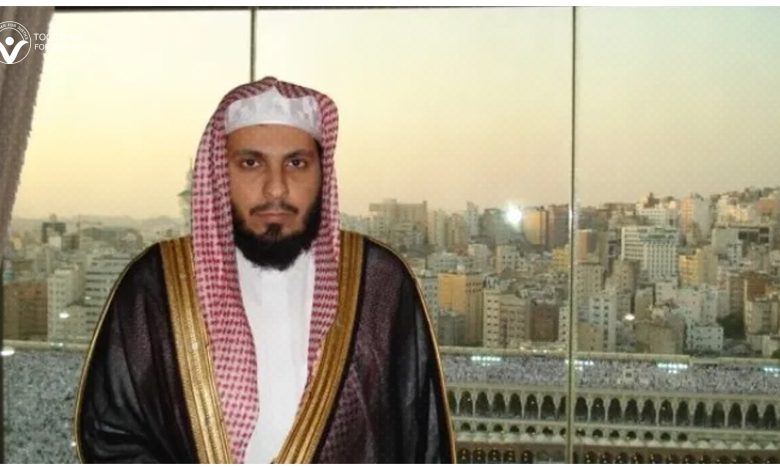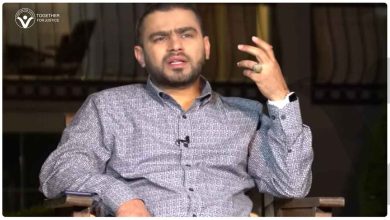From Prison to House Arrest: Sheikh Saleh Al-Talib’s Conditional Release Exposes Continued Repression

The organisation expresses its categorical rejection of the retaliatory measures imposed by the Saudi authorities against Sheikh Dr. Saleh bin Mohammed Al-Talib, Imam and preacher of the Grand Mosque in Mecca, who was released after more than seven years of arbitrary detention only to find himself confined within the walls of his home under house arrest and electronic ankle monitoring.
This development cannot be considered a genuine release but rather a transfer from prison cells to a “digital prison.” There is no essential difference between iron bars and electronic shackles that restrict his freedom and track his movements—both forms embody the same policy of repression and revenge. The Saudi authorities have not ended his ordeal but merely altered its form in an attempt to polish their image before the public.
Sheikh Al-Talib was arrested in August 2018 after delivering a sermon from the pulpit of the Grand Mosque in which he warned against deviating from Islamic principles, openly criticised the wave of normalisation with the Israeli occupation, and denounced the excessive openness threatening the values and identity of society. His words were perceived as a direct challenge to the regime’s new political direction, leading to his immediate arbitrary arrest. For long periods, his whereabouts remained unknown, and he was denied family contact and access to legal representation.
Throughout his detention, Sheikh Al-Talib was denied any form of fair trial. His hearings were held in complete secrecy, without a lawyer and without the chance to defend himself. An initial ruling acquitted him due to lack of evidence, but this was overturned under political pressure, and he was retried and sentenced in August 2022 to ten years in prison. This harsh and unjust sentence was issued in total absence of transparency, exposing the subjugation of the judiciary to political interference. During his years of imprisonment, he suffered harsh conditions, deliberate medical neglect, and severe restrictions on his family. His case is emblematic of the regime’s policy of punishing dissent and deterring all forms of independent thought or criticism.
Today, the restrictions imposed on Sheikh Al-Talib—house arrest and electronic shackles—make it clear that the repression has not ceased but has only changed form. The Saudi authorities insist on humiliating those who stood against injustice, proving that even after long years of imprisonment, freedom is still withheld.
The organisation stresses that freedom is indivisible, and any release that is conditional or restricted cannot be considered a positive step. We therefore:
- Demand the immediate and unconditional lifting of all restrictions imposed on Sheikh Saleh Al-Talib and the restoration of his full rights.
- Affirm that this case is not about one individual but part of a broader pattern of silencing dissenting voices in the Kingdom.
- Call upon the international community, UN bodies, and human rights mechanisms to exert serious pressure on the Saudi regime to end arbitrary detention and release all prisoners of conscience.
This so-called “release” is in fact another form of imprisonment. It exposes the regime’s continued attempts to evade accountability while persisting in its systematic repression of scholars, preachers, and reform advocates




